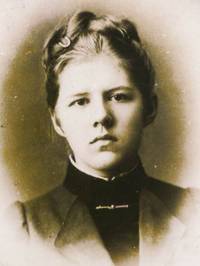Aimée Dostoyevsky
Born
in Dresden, Germany
September 14, 1869
Died
November 10, 1926
Genre
Influences

|
أبي فيودور دستويفسكي
—
published
1920
—
30 editions
|
|

|
The Emigrant
—
published
1912
—
21 editions
|
|

|
Больные девушки
|
|
* Note: these are all the books on Goodreads for this author. To add more, click here.
“And yet if anything in the world can save you, it is not a convent and not Catholicism, but simply an active interest in your fellow-creatures. When experience and observation have taught us love and charity, we are saved, and life is no longer terrible. Fate may be as cruel as she pleases ; but if we have warmth and love in our hearts, we shall never be alone, never in despair, and shall never think of self-destruction, if only out of pity for all our suffering brothers, whom, as long as we live, we have always the chance of helping.”
― The Emigrant
― The Emigrant
“No one can sing well, play well, or write well, without living through moments of the deepest pain and anguish. Every real talent has known times of torturing depression when the heart in its agony has cried out to God: “Why hast Thou forsaken me? What have I done that I should suffer so?" And then, at the very darkest moment, suddenly, the veil is torn from their eyes! Truth, with her flaming torch, stands before them, and they understand that God sends them suffering to strengthen and ennoble their talent, that it may touch men's hearts and show to tired wanderers on earth glimpses of heaven.”
― The Emigrant
― The Emigrant
“Books took, in her young life, the place of companions and childish games. She read a great deal without guidance or discrimination, and gained all her ideas on life, all her faith, all her ideals and aims and aspirations from books. Books stood between her and reality, and hid from her those deep truths that can never be learnt from even the greatest literary production, but can only be understood after long years of untiring observation and experience. It was in books also that Irene found her ideal of the man she could love. Her hero was an exceedingly complicated character.”
― The Emigrant
― The Emigrant











